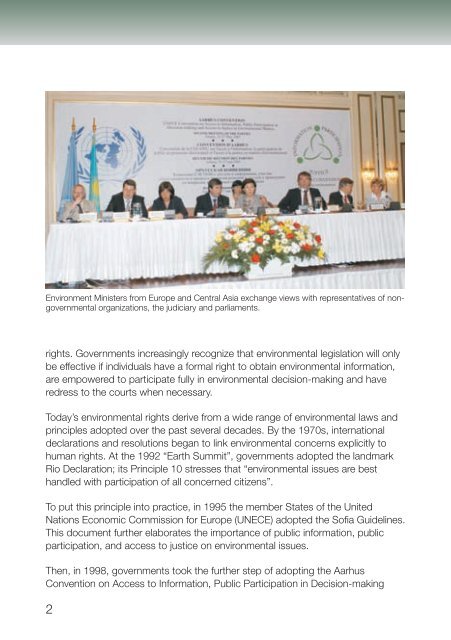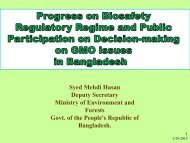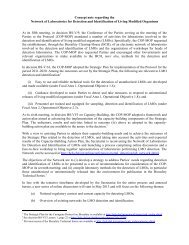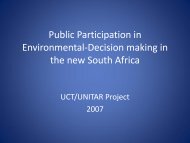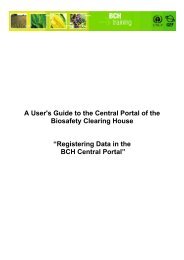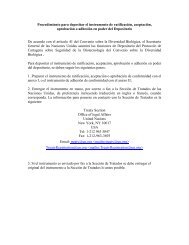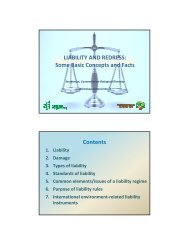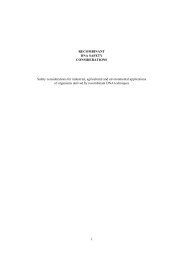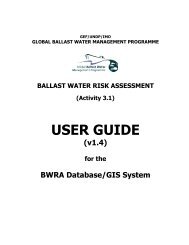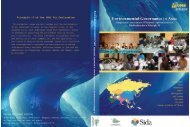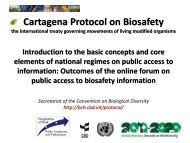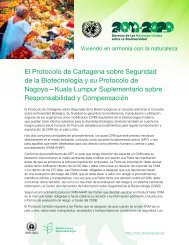Your Right to a Healthy Environment - UNECE
Your Right to a Healthy Environment - UNECE
Your Right to a Healthy Environment - UNECE
- No tags were found...
You also want an ePaper? Increase the reach of your titles
YUMPU automatically turns print PDFs into web optimized ePapers that Google loves.
<strong>Environment</strong> Ministers from Europe and Central Asia exchange views with representatives of nongovernmentalorganizations, the judiciary and parliaments.rights. Governments increasingly recognize that environmental legislation will onlybe effective if individuals have a formal right <strong>to</strong> obtain environmental information,are empowered <strong>to</strong> participate fully in environmental decision-making and haveredress <strong>to</strong> the courts when necessary.Today’s environmental rights derive from a wide range of environmental laws andprinciples adopted over the past several decades. By the 1970s, internationaldeclarations and resolutions began <strong>to</strong> link environmental concerns explicitly <strong>to</strong>human rights. At the 1992 “Earth Summit”, governments adopted the landmarkRio Declaration; its Principle 10 stresses that “environmental issues are besthandled with participation of all concerned citizens”.To put this principle in<strong>to</strong> practice, in 1995 the member States of the UnitedNations Economic Commission for Europe (<strong>UNECE</strong>) adopted the Sofia Guidelines.This document further elaborates the importance of public information, publicparticipation, and access <strong>to</strong> justice on environmental issues.Then, in 1998, governments <strong>to</strong>ok the further step of adopting the AarhusConvention on Access <strong>to</strong> Information, Public Participation in Decision-making


